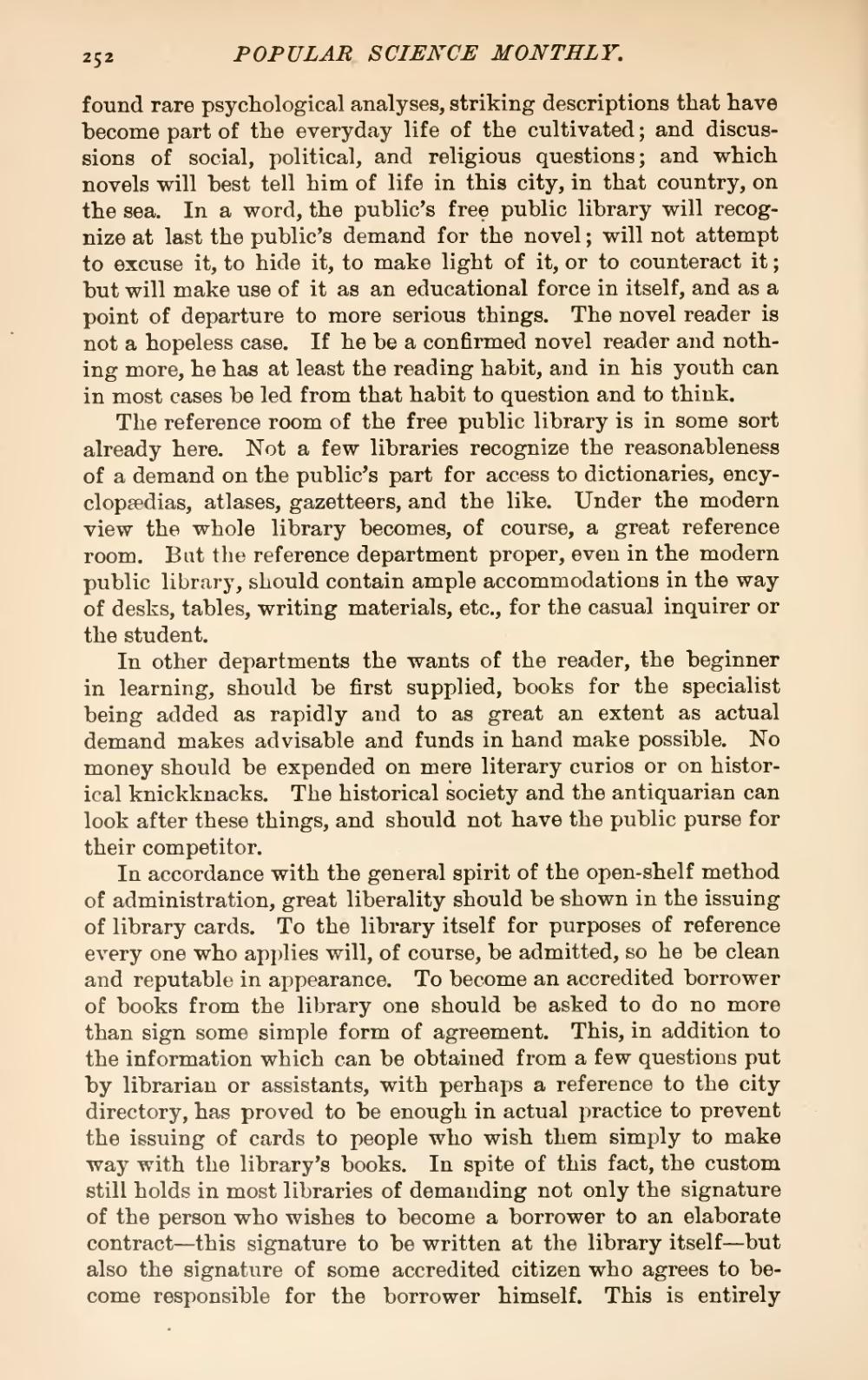found rare psychological analyses, striking descriptions that have become part of the everyday life of the cultivated; and discussions of social, political, and religious questions; and which novels will best tell him of life in this city, in that country, on the sea. In a word, the public's free public library will recognize at last the public's demand for the novel; will not attempt to excuse it, to hide it, to make light of it, or to counteract it; but will make use of it as an educational force in itself, and as a point of departure to more serious things. The novel reader is not a hopeless case. If he be a confirmed novel reader and nothing more, he has at least the reading habit, and in his youth can in most cases be led from that habit to question and to think.
The reference room of the free public library is in some sort already here. Not a few libraries recognize the reasonableness of a demand on the public's part for access to dictionaries, encyclopædias, atlases, gazetteers, and the like. Under the modern view the whole library becomes, of course, a great reference room. But the reference department proper, even in the modern public library, should contain ample accommodations in the way of desks, tables, writing materials, etc., for the casual inquirer or the student.
In other departments the wants of the reader, the beginner in learning, should be first supplied, books for the specialist being added as rapidly and to as great an extent as actual demand makes advisable and funds in hand make possible. No money should be expended on mere literary curios or on historical knickknacks. The historical society and the antiquarian can look after these things, and should not have the public purse for their competitor.
In accordance with the general spirit of the open-shelf method of administration, great liberality should be shown in the issuing of library cards. To the library itself for purposes of reference every one who applies will, of course, be admitted, so he be clean and reputable in appearance. To become an accredited borrower of books from the library one should be asked to do no more than sign some simple form of agreement. This, in addition to the information which can be obtained from a few questions put by librarian or assistants, with perhaps a reference to the city directory, has proved to be enough in actual practice to prevent the issuing of cards to people who wish them simply to make way with the library's books. In spite of this fact, the custom still holds in most libraries of demanding not only the signature of the person who wishes to become a borrower to an elaborate contract this signature to be written at the library itself—but also the signature of some accredited citizen who agrees to become responsible for the borrower himself. This is entirely
